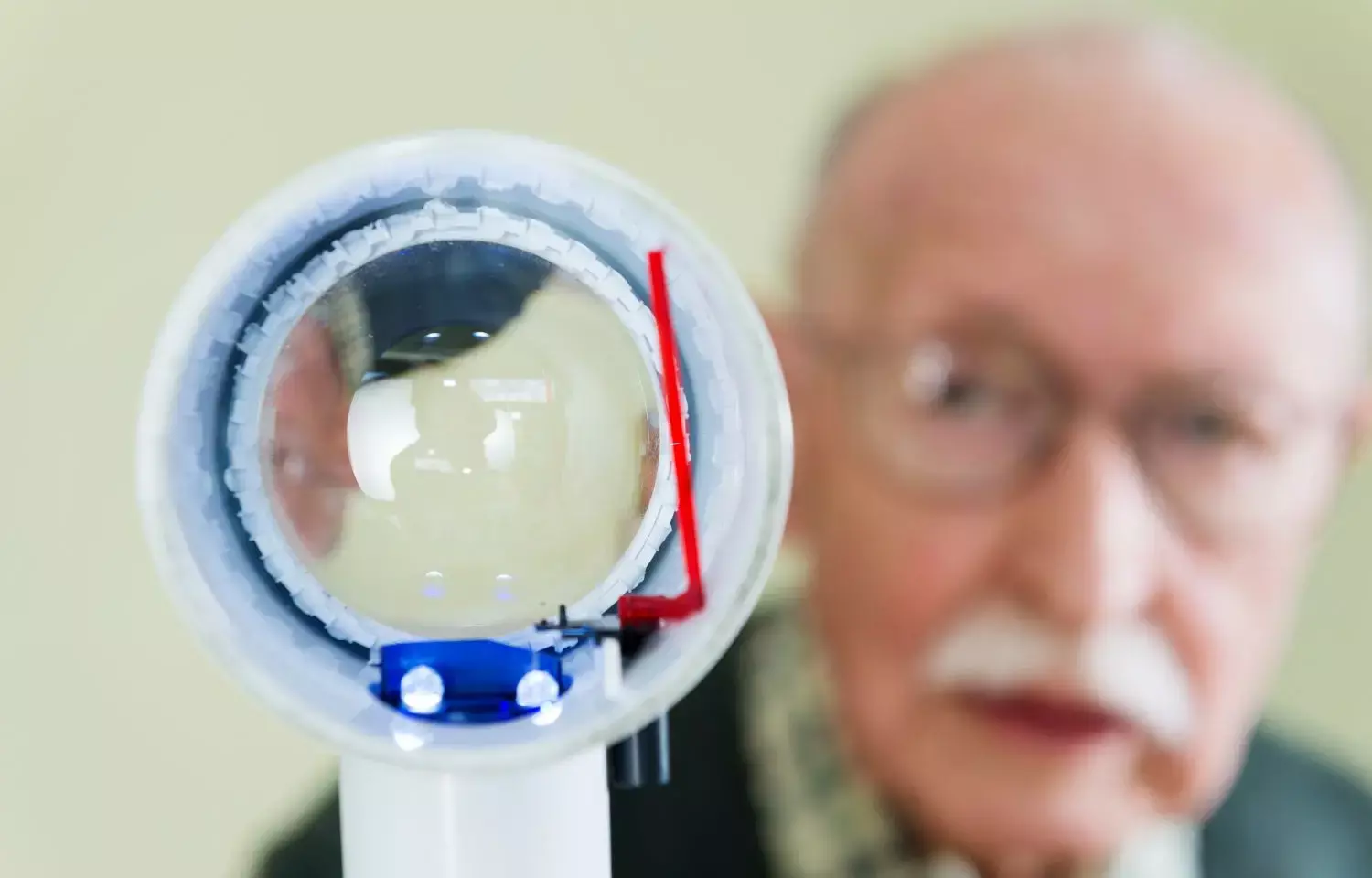- Home
- Medical news & Guidelines
- Anesthesiology
- Cardiology and CTVS
- Critical Care
- Dentistry
- Dermatology
- Diabetes and Endocrinology
- ENT
- Gastroenterology
- Medicine
- Nephrology
- Neurology
- Obstretics-Gynaecology
- Oncology
- Ophthalmology
- Orthopaedics
- Pediatrics-Neonatology
- Psychiatry
- Pulmonology
- Radiology
- Surgery
- Urology
- Laboratory Medicine
- Diet
- Nursing
- Paramedical
- Physiotherapy
- Health news
- Fact Check
- Bone Health Fact Check
- Brain Health Fact Check
- Cancer Related Fact Check
- Child Care Fact Check
- Dental and oral health fact check
- Diabetes and metabolic health fact check
- Diet and Nutrition Fact Check
- Eye and ENT Care Fact Check
- Fitness fact check
- Gut health fact check
- Heart health fact check
- Kidney health fact check
- Medical education fact check
- Men's health fact check
- Respiratory fact check
- Skin and hair care fact check
- Vaccine and Immunization fact check
- Women's health fact check
- AYUSH
- State News
- Andaman and Nicobar Islands
- Andhra Pradesh
- Arunachal Pradesh
- Assam
- Bihar
- Chandigarh
- Chattisgarh
- Dadra and Nagar Haveli
- Daman and Diu
- Delhi
- Goa
- Gujarat
- Haryana
- Himachal Pradesh
- Jammu & Kashmir
- Jharkhand
- Karnataka
- Kerala
- Ladakh
- Lakshadweep
- Madhya Pradesh
- Maharashtra
- Manipur
- Meghalaya
- Mizoram
- Nagaland
- Odisha
- Puducherry
- Punjab
- Rajasthan
- Sikkim
- Tamil Nadu
- Telangana
- Tripura
- Uttar Pradesh
- Uttrakhand
- West Bengal
- Medical Education
- Industry
Brolucizumab as good as aflibercept for improving clinical outcomes in Diabetic Macular Edema Outcomes: JAMA

A recent 52-week phase 3 clinical trial published in the Journal of American Medical Association compared the efficacy and safety of brolucizumab against aflibercept to enhance treatment options for diabetic macular edema (DME). Regardless the effectiveness of existing anti-vascular endothelial growth factor (VEGF) therapies, there is a constant need for treatments that can improve response rates and reduce injection frequency.
This study conducted with treatment-naive adults and those who had previously received anti-VEGF therapy did reveal intriguing results. Participants were randomized 2:1 to receive either brolucizumab (6 mg) or aflibercept (2 mg) via intravitreal injection every 4 weeks.
At the heart of the trial was the change in best-corrected visual acuity at week 52. Brolucizumab demonstrated noninferiority to aflibercept, showcasing a 12.2-letter improvement compared to aflibercept's 11.0-letter improvement.
Crucially, brolucizumab exhibited superiority in several aspects. The proportion of eyes without subretinal and intraretinal fluid was significantly higher in the brolucizumab group (41.6%) compared to aflibercept (22.2%). Additionally, the mean central subfield thickness change from baseline favored brolucizumab (-237.8 μm) over aflibercept (-196.5 μm).
Importantly, the trial found that brolucizumab's safety profile was comparable to aflibercept, with no new safety concerns identified. Incidences of intraocular inflammation, retinal vasculitis, and retinal vascular occlusion were monitored and were within an acceptable range.
The results of this trial mark a significant stride in DME treatment, suggesting that brolucizumab could offer a viable alternative for patients. While both drugs demonstrated similar visual outcomes, the superior anatomic improvements seen with brolucizumab indicate a potential edge in addressing the complexities of DME.
Source:
Singh, R. P., Barakat, M. R., Ip, M. S., Wykoff, C. C., Eichenbaum, D. A., Joshi, S., Warrow, D., Sheth, V. S., Stefanickova, J., Kim, Y. S., He, F., Cho, G. E., Wang, Y., & Emanuelli, A. (2023). Efficacy and Safety of Brolucizumab for Diabetic Macular Edema. In JAMA Ophthalmology. American Medical Association (AMA). https://doi.org/10.1001/jamaophthalmol.2023.5248
Neuroscience Masters graduate
Jacinthlyn Sylvia, a Neuroscience Master's graduate from Chennai has worked extensively in deciphering the neurobiology of cognition and motor control in aging. She also has spread-out exposure to Neurosurgery from her Bachelor’s. She is currently involved in active Neuro-Oncology research. She is an upcoming neuroscientist with a fiery passion for writing. Her news cover at Medical Dialogues feature recent discoveries and updates from the healthcare and biomedical research fields. She can be reached at editorial@medicaldialogues.in
Dr Kamal Kant Kohli-MBBS, DTCD- a chest specialist with more than 30 years of practice and a flair for writing clinical articles, Dr Kamal Kant Kohli joined Medical Dialogues as a Chief Editor of Medical News. Besides writing articles, as an editor, he proofreads and verifies all the medical content published on Medical Dialogues including those coming from journals, studies,medical conferences,guidelines etc. Email: drkohli@medicaldialogues.in. Contact no. 011-43720751


